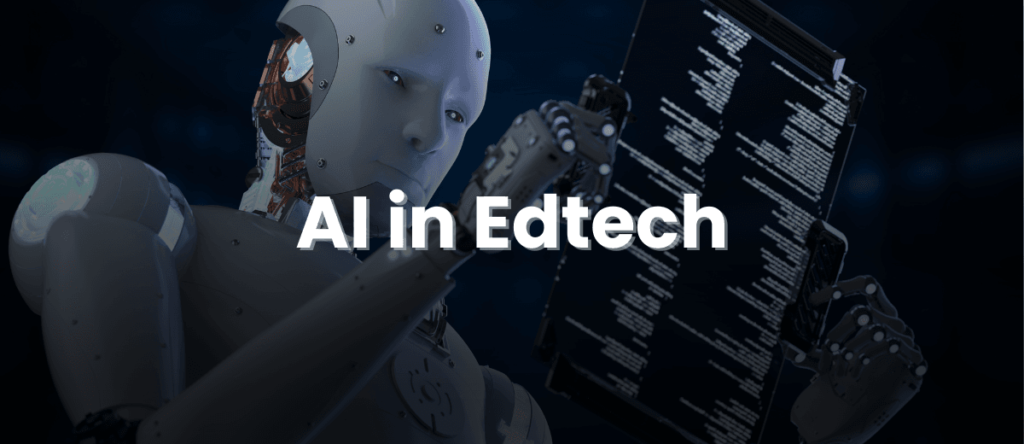Smart AI Labs are set to play a major role in reshaping the future of Gulf education systems. With advanced artificial intelligence solutions entering classrooms across the region, Gulf countries are now investing in next-generation learning tools aimed at creating smarter, more adaptive, and future-ready education environments by 2030.
The shift is not just about digitizing textbooks or using smartboards. Smart AI Labs are designed to introduce AI-powered technologies that help personalize learning, automate tasks for teachers, and improve overall educational outcomes. These labs are expected to become a central part of national education strategies in countries like the UAE, Saudi Arabia, Qatar, and Bahrain.
What Are Smart AI Labs?

Smart AI Labs are dedicated learning environments equipped with artificial intelligence technologies such as machine learning tools, data analytics systems, intelligent tutoring software, robotics, and adaptive learning platforms. These labs enable real-time assessment of student performance, tailor content based on individual learning styles, and even predict academic success or dropout risks.
With Smart AI Labs, educators can identify gaps in understanding faster, provide targeted feedback, and guide students through personalized learning paths. For students, this means more interactive, engaging, and meaningful learning experiences.
Why Gulf Nations Are Turning to Smart AI Labs
The Gulf region is one of the fastest-growing markets for education technology. Governments in the region are looking at Smart AI Labs as a key solution to meet their Vision 2030 goals, which focus on innovation, digital transformation, and knowledge-based economies.
Here are the major reasons Gulf countries are investing heavily in Smart AI Labs:
- Future Workforce Readiness: As job markets shift toward AI, data, and automation, Smart AI Labs help prepare students with the right digital skills from a young age.
- National Education Reforms: Saudi Arabia’s Vision 2030 and the UAE’s Centennial 2071 both emphasize modernizing education. Smart AI Labs align directly with these ambitions.
- Closing Learning Gaps: Personalized learning powered by AI helps bridge gaps between different learners. This is especially useful in multilingual and diverse classrooms common in the Gulf.
- Boosting Global Rankings: Gulf nations are keen to improve their international education rankings. Smart AI Labs contribute to better student outcomes, critical thinking, and innovation.
- Data-Driven Decisions: AI can analyze large amounts of student data to guide policies, teaching methods, and resource allocation.
Implementation Already Underway
The journey to 2030 has already begun. Countries across the Gulf are launching pilot programs, upgrading school infrastructure, and partnering with tech companies to set up Smart AI Labs.
- United Arab Emirates: The UAE’s Ministry of Education has introduced AI-focused curriculum and is testing AI labs in select schools. Dubai’s “AI Campus” aims to become a model for smart learning in the region.
- Saudi Arabia: With over $500 million allocated to educational AI projects, Saudi Arabia has started installing Smart AI Labs in public schools and universities. The King Abdullah University of Science and Technology (KAUST) is leading in AI research and applications.
- Qatar: Qatar Foundation is pushing for smart learning integration across its schools. AI labs are also being introduced at Qatar University and other academic institutions.
- Bahrain and Oman: These countries are also investing in pilot Smart AI Labs and teacher training programs to adopt AI tools in the classroom.
The Role of Teachers in AI-Powered Classrooms
While Smart AI Labs enhance the learning experience, they do not replace teachers. Instead, they support educators by taking over repetitive tasks like grading and providing real-time insights into student progress. Teachers are still the core of any educational system, but Smart AI Labs allow them to focus more on creativity, mentoring, and complex problem-solving.
To prepare educators for this shift, Gulf education ministries are introducing AI training programs for teachers and administrators. Understanding how to use AI tools effectively is becoming a must-have skill for modern educators in the region.
Opportunities and Benefits
Smart AI Labs open up new opportunities in Gulf education:
- Enhanced Student Engagement: Interactive learning through simulations, gamified lessons, and virtual assistants.
- Real-Time Feedback: Instant assessments help students and teachers adapt quickly.
- Inclusivity: AI tools can support students with learning disabilities or those who speak different languages.
- Global Collaboration: AI platforms connect students and educators across borders for group projects and cultural exchange.
- Cost Efficiency: In the long run, AI reduces the need for printed materials, redundant administrative staff, and repeated teacher training.
Challenges in Adopting Smart AI Labs
Despite the benefits, implementing Smart AI Labs across all Gulf schools is not without obstacles:
- High Costs: Setting up labs with advanced AI tools, hardware, and software is expensive.
- Cybersecurity Risks: With increased reliance on data, ensuring privacy and protection is essential.
- Teacher Resistance: Not all educators are comfortable using AI. Training and support are crucial.
- Infrastructure Gaps: Rural areas may lack internet access or stable electricity to support AI labs.
Still, Gulf governments are optimistic. The push toward digital education is strong, and Smart AI Labs are seen as an essential step in preparing the next generation.
A Glimpse Into 2030

By 2030, Smart AI Labs are expected to become a standard part of education in the Gulf. Students will likely engage in lessons led by AI tutors, collaborate with classmates using virtual reality, and receive feedback from intelligent learning systems. Exams may be replaced with continuous AI-driven assessment, and classrooms will be more connected than ever.
As Smart AI Labs become more common, the gap between traditional and modern education will shrink. Gulf countries aim to lead this transition not just regionally, but globally.
Final Thoughts
Smart AI Labs are not just a futuristic concept they are already starting to redefine learning across the Gulf. With their potential to personalize education, increase student success, and support teachers, they are poised to be one of the most important educational tools of this decade.
Gulf nations are betting on this powerful transformation to help them build smarter societies, competitive economies, and globally recognized education systems. As we approach 2030, Smart AI Labs are not just enhancing classrooms they are building the future of education in the Gulf.
Also Read – Gulf Education Faces 2025 Crisis with Urgent Teacher Shortages



